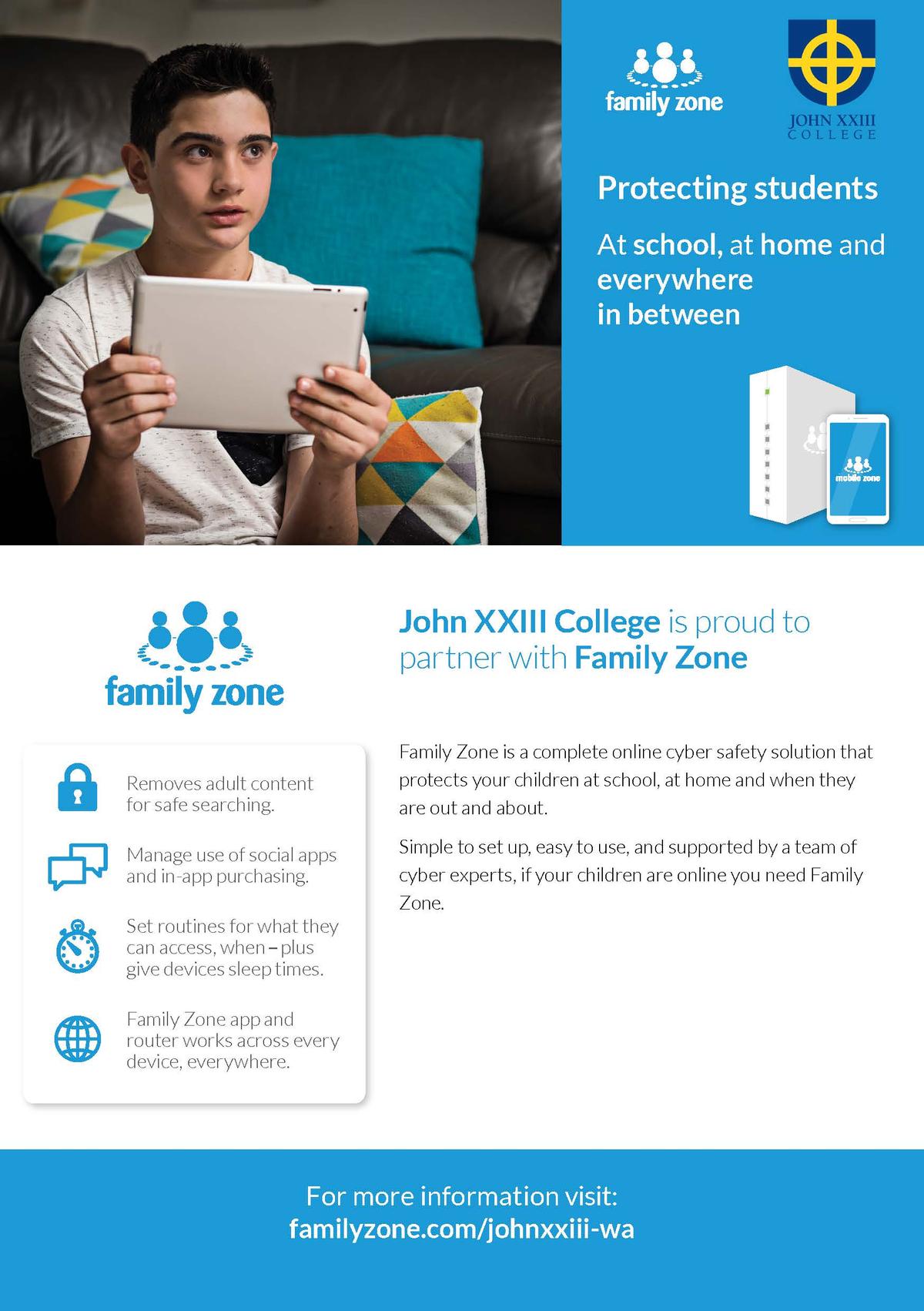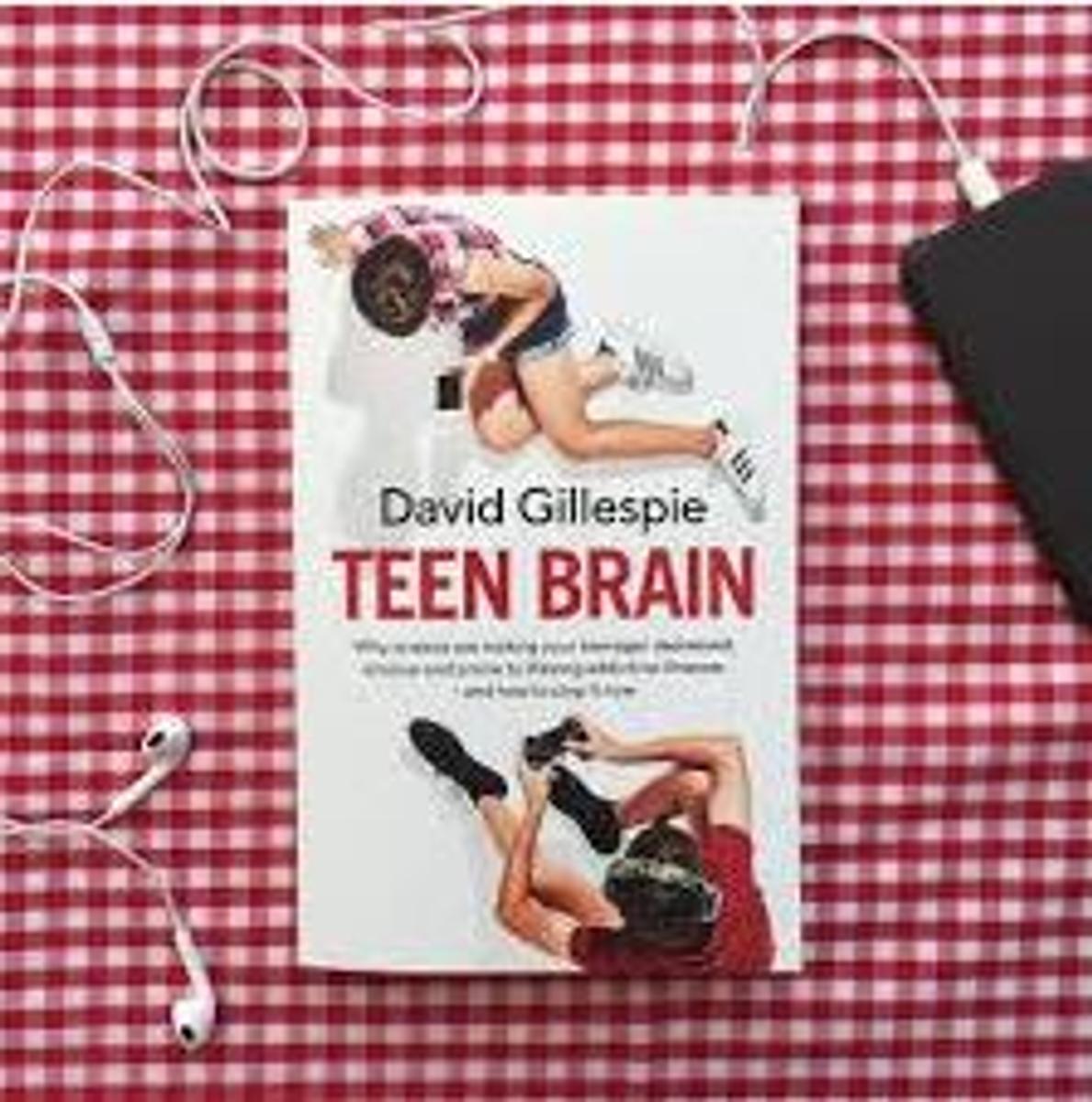Family Zone & Cyber Safety

Download Family Zone
Make use of the Family Zone Accounts which we are offering to John XXIII College families for free, as part of our College contract negotiations until 2020.
By setting up a private Family Zone account, you can apply age-appropriate parental controls on every device your child has access to, in any location. To find out more visit https://www.familyzone.com/johnxxiii-wa
Family Zone Webinar recordings
For those that were unable to make the Family Zone webinars, we have recorded both sessions for you to view in your own time, and they are available here: https://www.familyzone.com/johnxxiii-wa
Webinar topics are:
- Getting Started with Family Zone
- Advanced with Family Zone
Is "teen brain" really a thing?
A new book is subtitled “why screens are making your teenager depressed, anxious, and prone to lifelong addictive illnesses - and how to stop it now.”
Wow. Really?
David Gillespie’s Teen Brain has received plenty of attention in the media - and with claims as big as that, it’s no wonder.
But experts are dubious about many of the book’s sweeping generalisations and reliance on what one academic expert calls “dodgy science.”
Maybe that’s not surprising. David Gillespie’s online bio describes him as “a recovering corporate lawyer, former co-founder of a successful software company and an investor in several software startups.” So science of any kind does not appear to be his strong suit.
In a recent review in The Conversation, Sarah Loughran, a research fellow at the University of Wollongong with a PhD in cognitive neuroscience, examines the evidence for Gillespie’s headline-grabbing assertions and finds the line between social science and sensationalism can get blurred.
Take Gillespie’s definition of puberty, for example: a period in which all “males turn into large, hairy, smelly beasts with no impulse control and a desire for danger and sex.”
Amusing? Possibly. Sexist? Probably. Scientific? Um, hardly.
And that would be okay, except that Teen Brain purports to deliver data, not opinion or commentary. And far too many of its claims about screen-time, and its pernicious effects on our kids’ brains, are equally unsubstantiated and over-the-top.
Some key assertions are lacking in evidence entirely, notes Loughran - such as the throwaway line that the stimulation we get from caffeine “is identical” to the “dopamine-stimulating apps installed on your child’s device.”
In other cases, the relevant research has been misrepresented or misread. Take the claim that teen anxiety has tripled between 2003 and 2011, for example.
In fact, the data shows that anxiety diagnoses over that period have remained completely stable. The presentation of anxiety symptoms has multiplied - but that has been attributed to increased awareness by GPs and increased likelihood that teens will seek help.
But then he goes further. Not only is your child’s iPad is “delivering” mental illness, but excessive screen-time is also directly to blame for higher rates of suicide and self-harm among today’s young people.
This despite the fact that nearly all experts have cautioned - repeatedly - that such behaviours are complex and multi-causal, and can never be reduced to simple a cause-and-effect relationship with screen-time.
Observes Loughran, “The real shame overall is that the key message, that we should limit our teens’ screen time, is actually a good one.”
Experts agree: It’s almost certainly the case that excessive use of devices is having an impact on teens’ wellbeing - anxiety and depression included.
But alarmist tracts like Teen Brain will not help us understand that impact or how to help our kids, Loughran concludes. Parents are understandably fearful, and fear tends to draw us to easy answers.
"This kind of communication only serves to perpetuate fear and create anxiety – the exact things that the author claims his book will fix.”




